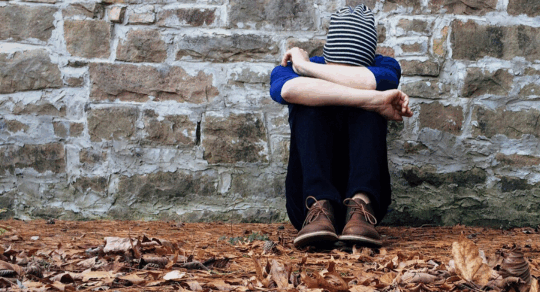When I was younger, I attended more funerals than weddings. I grew up in the Catholic Church, and these ceremonies were long and somber. Everyone wore black and the music was sad, but I became curious about the psychology of death.
In university, I came across the book On Death and Dying by Dr. Elisabeth Kubler-Ross. I was fascinated by her teachings and read all her books. I was fortunate to hear her speak and found her teachings made so much sense.
The moment we are born we are in a process of dying. But what’s important is what we do with the time we have on this earth. The challenge is how uncomfortable people are discussing death. It’s almost as if it won’t happen if we don’t talk about it.
No matter how we want to stop it, death is going to happen to every one of us. No amount of creams or injections will change that fact.
I’m certainly not saying that it’s not challenging to have someone you know and care deeply about die, but I do believe that we need to normalize its occurrence and accept its inevitability. We need to use the words dead, dying, and death.
My husband died prior to his 41st birthday. I’ve never used the words passed or loss regarding his death, because they are not accurate. Several years after he died I was at a school meeting and one parent said, “I’m sorry to hear you lost your husband.” I looked at him and said, “I didn’t lose my husband; I know exactly where he is. He’s buried at Holy Cross Cemetery.”
By using the words loss or passed, we try to make death sound better, perhaps thinking it won’t hurt the living as much. However, it does neither of these things and only stops us from accepting the reality that we are all going to die.
I talk about the eventuality of my death, I’ve planned my funeral, I’ve made my wishes known. Am I ready to die? Of course not, but I don’t deny it’s inevitability, and I ensure that I live life to its fullest, always wanting to learn new things and expand my education.
I worked as a social worker for 23 years and I can remember a co-worker whose husband died in a freak accident. Every day at 3:00 p.m. she found herself crying, and no one wanted to be around her because they weren’t comfortable with her grief. I reached out to her and we met every day for several months, and I just listened. She knew I was comfortable listening to her.
I’ve known many people who have grieved a death, and they all grieve differently. There is no timeline on how long the grieving will take, but I’m very sure of one thing: if they find someone with whom they can share their grief and who will sit and listen, the healing will happen sooner than if they grieve alone.
Listening, and I mean really listening, to someone is so very important. Some of us go through our entire lives without ever experiencing what it’s like to have someone really listen to our thoughts and feelings.
Often people listen while planning their response. That’s a good way to tell the other person, “My response is more important than what you have to tell me.” I’ve experienced both types of listening, and I can tell you how lucky I am to have wonderful people actually listen to me and who let me know I am heard.
I grew up as part of a generation who didn’t talk about anything. Everything was a big secret, and I don’t like secrets. I wanted to know about menstruation, conception, giving birth, menopause, death. In those days there were no computers where you could do a Google search. You soon found out with whom you could ask questions, or you read books.
I continue to learn and inquire about things. If you find yourself uncomfortable with death, dig deep within your soul and ask yourself why.
I had a client who brushed off any challenge in his life as “no big deal.” This really concerned me, but no matter what I said he repeated his same comment of “no big deal.” Then one day his father died, and this man couldn’t pretend it was “no big deal.” Six months later he took his own life because he didn’t know how to handle something that was a big deal.
When we normalize death and feel comfortable talking about it then we can truly help others when they are experiencing their grief. How can you help someone who is grieving if they sense you are uncomfortable with the topic? They will keep their grief inside and believe no one understands how they are feeling, and the sad thing is they aren’t wrong.
Start using the correct words; eliminate the word passed and use loss in the proper context. We will never be able to feel comfortable about death if we never say the word. Someone didn’t pass; they died. I didn’t lose my husband; he died.
Accepting death as part of the cycle of life and allowing the word to be part of your vocabulary will help make you a happier person who doesn’t fear anything and who can help others cope. Well, I’m still am fearful of spiders, but they don’t count.
Mike Dooley speaks in-depth on the topic of death and the lessons those who have passed on want to share with us in his book The Top Ten Things Dead People Want to Tell You. The 10th Anniversary of this special book releases February 20. Pre-order your copy and get a FREE TICKET to his live workshop!








